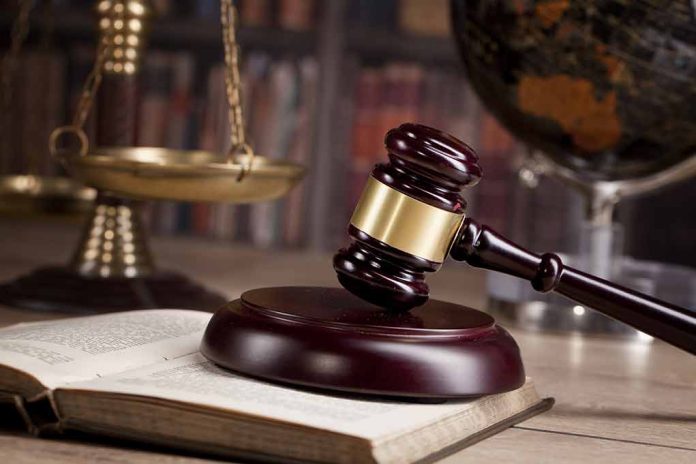
In a significant legal turn, a Washington appeals court upheld President Donald Trump’s firing of a federal agency head, stirring debate on presidential authority over special counsel assignments.
Key Takeaways
- The D.C. Circuit Court of Appeals backed President Trump’s removal of Hampton Dellinger, intensifying debates on executive power.
- A previous court ruling deemed the firing unlawful, but the appeals court issued an expedited review and brief order.
- Judges from different political appointments supported Trump’s authority, highlighting executive reach.
- Dellinger, appointed by President Biden, plans to appeal to the U.S. Supreme Court.
- The case probes limits on presidential power to dismiss leaders of independent agencies.
Court Validates Presidential Dismissal
An appeals court recently endorsed President Trump’s decision to remove Hampton Dellinger, head of the Office of Special Counsel. This legal decision pivots on the discussions that have emerged following Trump’s contested firings of individuals investigating his presidency. The appeals court’s ruling follows a lower court’s earlier decision favoring Dellinger, which had stated the firing was unlawful.
The D.C. Circuit Court of Appeals ruling comes on the heels of its expedited review of the case. Judges from various presidential appointments, George H.W. Bush, Barack Obama, and Trump, unanimously upheld the presidential authority to fire a special counsel. Dellinger was put into office by President Joe Biden and was to serve a five-year term confirmed by the Senate in 2024.
Solicitor General Harris, to SCOTUS:
“Until now, as far as we are aware,” Harris wrote, “no court in American history has wielded an injunction to force the President to retain an agency head whom the President believes should not be entrusted with executive power and to…
— Dixie T 🇺🇸 🍊🍊🍊 (@DixT3) February 19, 2025
“As this Court observed just last Term, ‘Congress cannot act on, and courts cannot examine, the President’s actions on subjects within his conclusive and preclusive constitutional authority’ —including ‘the President’s unrestricted power of removal with respect to ‘executive officers of the United States whom [the President] has appointed,'” summarized acting Solicitor General Sarah M. Harris
Legal Battle and Future Appeals
The Trump administration’s rationale for removing Dellinger centered on decreasing federal oversight and dismantling existing watchdog agencies. This decision has sparked a legal battle, and Dellinger has filed a lawsuit challenging the removal’s legality. His legal team argues for the conditions under which a special counsel can be dismissed.
U.S. District Judge Amy Berman Jackson criticized the decision, stating, “Defendants imply that it would be too disruptive to the business of the agency to have Special Counsel Dellinger resume his work. But any disruption to the work of the agency was occasioned by the White House. It’s as if the bull in the china shop looked back over his shoulder and said, ‘What a mess!'”
Following his termination, a government panel decided that over 5,000 USDA employees dismissed under Trump needed reinstatement, a decision advocated by Dellinger’s office. Meanwhile, the White House maintains that reinstating Dellinger would disrupt agency work.
Constitutional Debate on Power Limits
This case encapsulates the ongoing debate over the extent of presidential authority in replacing officials in independent agencies. The Trump administration contends that special counsel protections are unconstitutional, whereas Dellinger’s party argues that unrestricted dismissal power fundamentally jeopardizes the office’s efficacy in safeguarding whistleblowers.
Further complicating matters, Dellinger was challenging Trump’s firing of thousands of probationary workers before his dismissal, adding another layer to this pivotal constitutional debate expected to be reviewed by the U.S. Supreme Court.
Sources:
- Trump can remove head of federal watchdog for now, appeals court rules
- Appeals Court Unanimously Allows Trump to Fire Special Counsel – Newsweek













